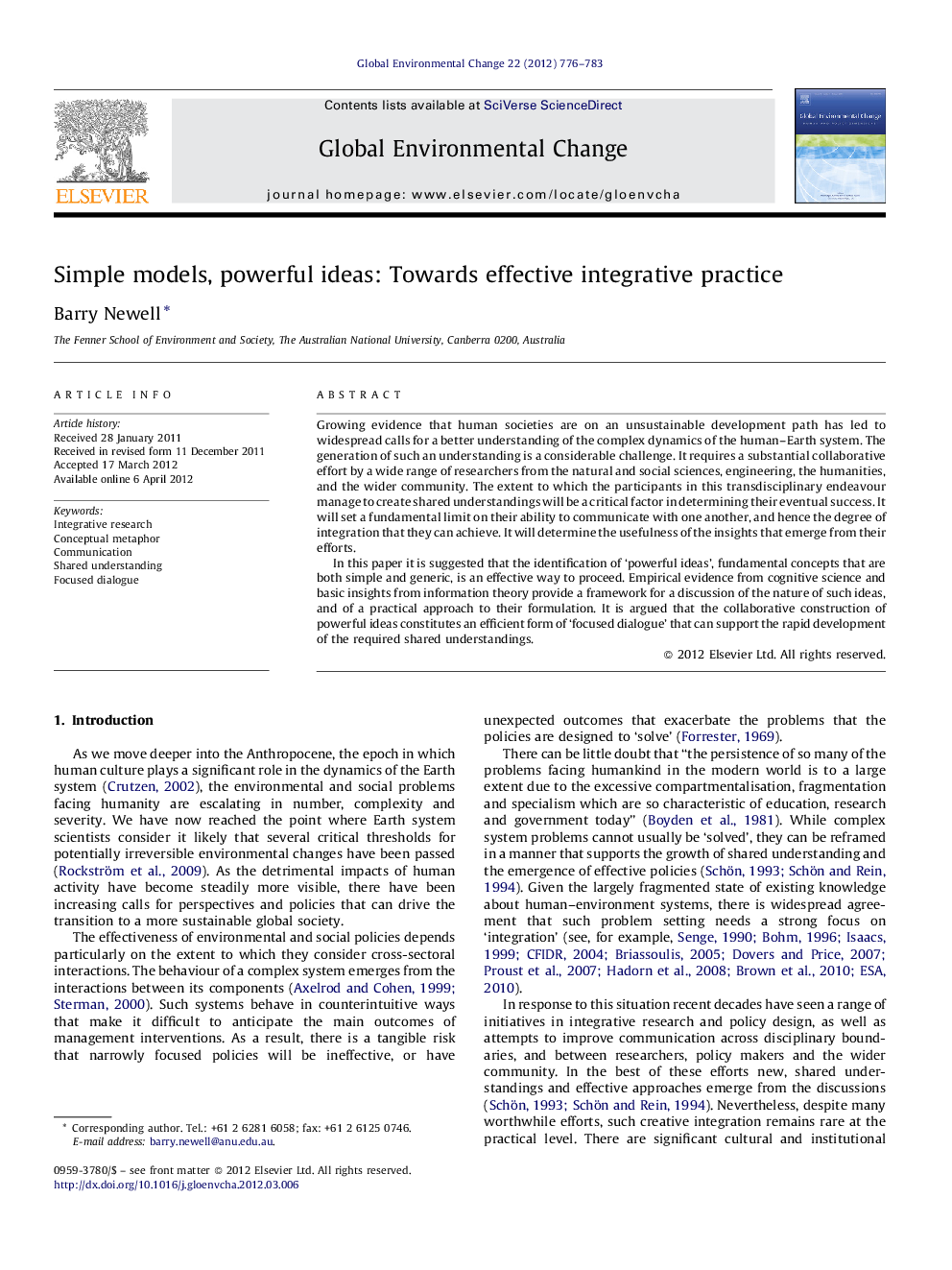| Article ID | Journal | Published Year | Pages | File Type |
|---|---|---|---|---|
| 1054779 | Global Environmental Change | 2012 | 8 Pages |
Growing evidence that human societies are on an unsustainable development path has led to widespread calls for a better understanding of the complex dynamics of the human–Earth system. The generation of such an understanding is a considerable challenge. It requires a substantial collaborative effort by a wide range of researchers from the natural and social sciences, engineering, the humanities, and the wider community. The extent to which the participants in this transdisciplinary endeavour manage to create shared understandings will be a critical factor in determining their eventual success. It will set a fundamental limit on their ability to communicate with one another, and hence the degree of integration that they can achieve. It will determine the usefulness of the insights that emerge from their efforts.In this paper it is suggested that the identification of ‘powerful ideas’, fundamental concepts that are both simple and generic, is an effective way to proceed. Empirical evidence from cognitive science and basic insights from information theory provide a framework for a discussion of the nature of such ideas, and of a practical approach to their formulation. It is argued that the collaborative construction of powerful ideas constitutes an efficient form of ‘focused dialogue’ that can support the rapid development of the required shared understandings.
► Integrative research and policy making require shared conceptual frameworks. ► The construction of such frameworks requires significant time and energy. ► ‘Powerful ideas’ are metaphors that are both simple and generic. ► Efforts to identify or build powerful ideas support efficient ‘focused dialogue’. ► Focused dialogue can reduce the time to develop shared conceptual frameworks.
